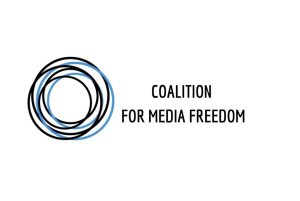In this pivotal election year, the EU has introduced its first-ever piece of media legislation, the European Media Freedom Act (EMFA). How the EMFA can strengthen media independence, and where authoritarian or weak governments might exploit potential loopholes, has been a key topic in a discussion in the European Parliament, with insights from the Balkan Free Media Initiative (BFMI), a Brussels-based media organisation.
In its latest landmark report, “The invisible hand of media censorship in the Balkans. A closer look at media ownership in the Balkans and the European Media Freedom Act, the Balkan Free Media Initiative (BFMI) offers a comprehensive analysis of the current state of media freedom in the Balkans. The report highlights the region’s key challenges and opportunities in strengthening media independence and transparency.
Welcoming the study, Roberta Metsola, President of the European Parliament, stated: “The European Media Freedom Act marks a turning point for our democracy, in the European Union and beyond. Especially in the Balkans, where media often face political and economic pressure, this European law provides a pathway to reform. It is an opportunity to build a media landscape that empowers citizens, ensures transparency over media ownership and builds trust in public institutions. Swift implementation must now follow. The European Parliament is ready to support in every way we can – because a free press is and will always be the lifeblood of any democracy.”
Andrey Kovatchev, Spokesperson of the EPP Group for Enlargement and Southern Neighbourhood, who hosted the event, said: “The European Parliament, as the citizens’ institution, is a leading defender of media freedom and journalistic independence — the foundations of democracy and a counterbalance to authoritarianism. The adoption of the European Media Freedom Act is an investment in the future of younger generations, ensuring that Europe remains a symbol of transparency, accountability, and the rule of law. Supporting independent media is crucial for strengthening democracy in Southeast Europe and guiding countries in the region towards shared European values.”
The report by BFMI sheds light on how politically connected media ownership and state interference could undermine the protections of the EMFA. The report also warns that inconsistent enforcement of EU standards may leave the public uncertain about who ultimately controls major media outlets. Elevating and defending the EMFA should become a priority in the EU’s enlargement strategy, particularly within newly mandated European institutions.
The report includes case studies from five countries in the strategically important Balkan region, which features the EU’s lowest-ranking nation in media freedom, a country with record political turnover, and states vulnerable to foreign influence.
The report makes recommendations to Brussels policymakers to enforce and potentially strengthen the act including:
Strengthening:
- Strengthening provisions to create transparency in media ownership to prevent unaccountable, influential entities from swaying public opinion;
- Supporting media pluralism through policies that limit monopolies and encourage a variety of independent perspectives;
- Ensuring that public funding for media is allocated transparently and fairly to prevent political bias and support independence;
Enforcing:
- Protecting public service media from political interference to preserve their role as impartial news providers;
- Making media regulators independent and accountable to ensure fair oversight; and
- Increasing transparency in political advertising to prevent manipulation and boost accountability.
Antoinette Nikolova, Director of BFMI, comments: “The EU holds some of the highest standards globally for media freedom, but the Balkan states present a unique set of challenges that the European Media Freedom Act in its current form is insufficient to address.”
“Creating this media law was a challenging endeavor that required substantial effort. Leading democracies with fewer media freedom issues were resistant to additional regulation from Brussels. But a strong media environment, free from political interference is a vital precondition for any successful democracy. Enabling and protecting this should be at the center of the EU’s harmonization and enlargement policy.”
ENDS
Notes for Editors:
For media enquiries, please contact: [email protected]
About the Balkan Free Media Initiative (BFMI):
The Balkan Free Media Initiative (BFMI) is an independent, Brussels-based cross-border media watchdog dedicated to closing the gap in media freedom advocacy and accountability across Southeastern Europe. Our mission is to strengthen and protect independent media to advance democratic values across the region. Established in 2021, BFMI is supported by an International Advisory Board of experienced media, policy, and diplomatic professionals from the EU, U.S., U.K., and the Balkans. We focus on structural issues of media ownership, regulation, and funding in the Balkans, highlighting their impact on regional peace and democracy.
About the Report:
Please find the report here
BFMI partners with local and international organizations to monitor, research and analyse the media landscape in countries across the Balkan region.
This report was completed with support from:
- Centre for Research Transparency and Accountability (CRTA), is a Belgrade-based independent, non-partisan civil society organisation committed to developing democratic culture and civic activism in Serbia. CRTA is leading the largest domestic election observation mission in Serbia.
- VouliWatch, a Greek non-profit organization dedicated to strengthening democracy by enhancing transparency, accountability and promoting democratic participation in the country.




